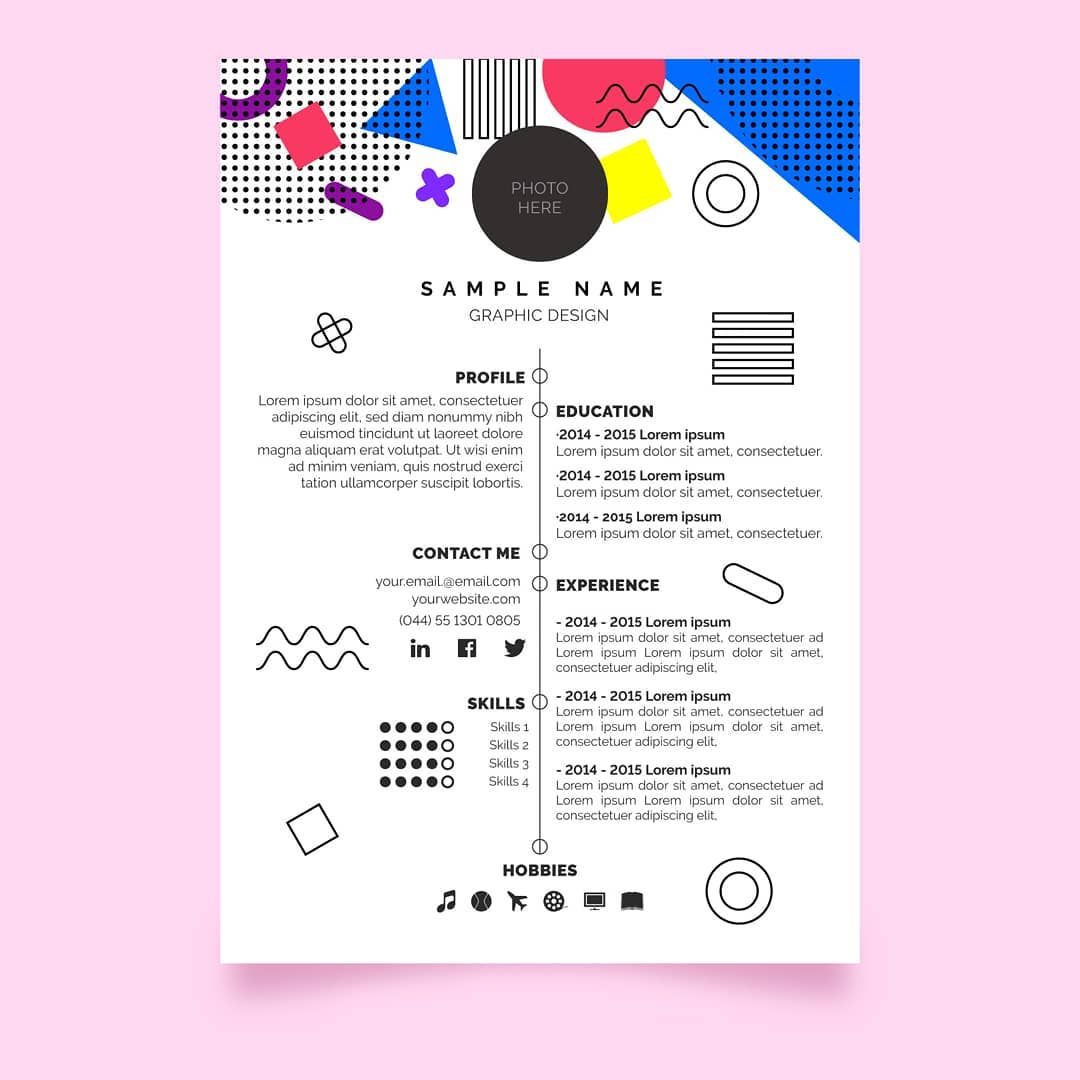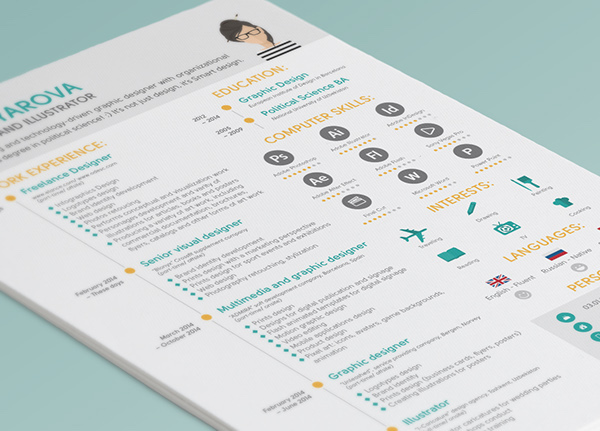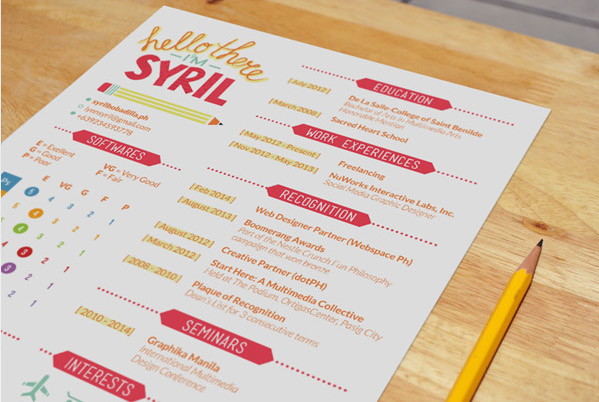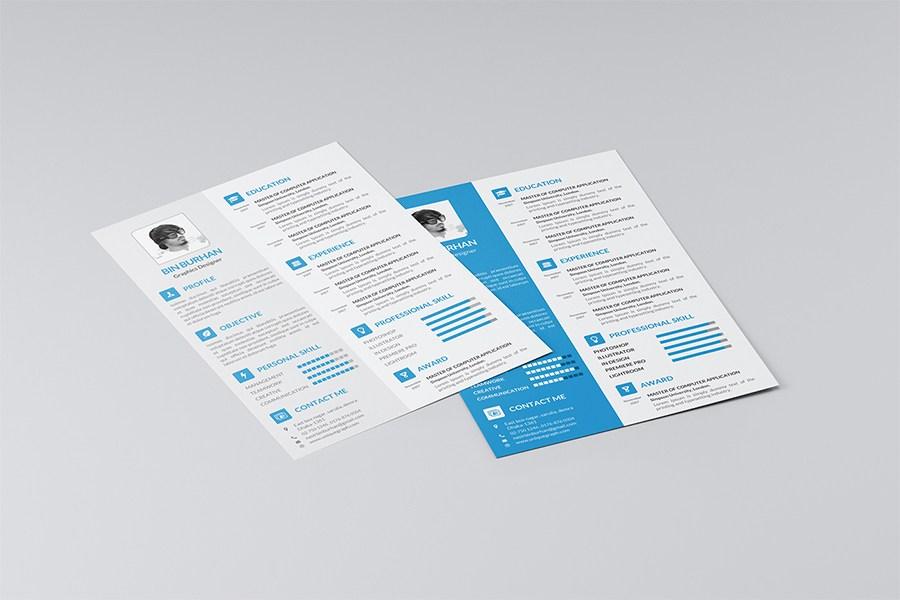Interests and Hobbies to Make Your Curriculum Vitae Stand Out
Passions and work. One of the keys in everyone’s life is to be able to relate what we like to what we do to earn a living. It’s not an easy task.
But somehow, even though we haven’t arrived yet. At this point, our personal interests reflect what we want to do and how we want to do it.
Knowing the meaning of our hobbies on the curriculum so that we can link them to what a company needs, can give us a differentiating touch that makes us stand out from the rest of the candidates.
But be careful. The line between looking good and looking unprofessional is very thin.
In this guide you will see:
- Tips for including hobbies in the resume
- Examples of personal interests in a CV
- What not to include in personal interests
- Pros and cons of hobbies in the CV

How to include hobbies in the Curriculum
The devil is in the details. To make hobbies look presentable within the curriculum, They have to follow some rules:
- They must go to the end of the CV. Its function is complementary, therefore it must always be in the background.
- They must have some kind of relationship with the job or the company. This way you will have more options to be seen as something relevant
- They should be listed or summarized in a few words. It is not something to be extended.
- It should be easy to read. Clear and not time-consuming or confusing.
For our hobbies to be seen as something positive within the company, we must bear in mind that not everything goes.
Personal interests can be included in different ways when looking for work:
- In a separate section. Brief and at the end of the curriculum.
- In the data of interest. These could be accompanied by other information such as availability to travel, the driver’s license, or other relevant information that you have not been able to include in other sections.
- In the cover letter. If you do not see fit to include your hobbies in the CV, you can mention them in the cover letter.
- Leave them for the interview. If you see that your hobbies do not fit within the CV or the cover letter, you should at least prepare them in case they ask you about them during the job interview.
Examples of Personal Interests in a CV
What you do outside of work says a lot about you. There are many ways of referring to our hobbies. Each hobby is different and can have many meanings, depending on the energy it transmits, the commitment it needs, the need to collaborate with other people, the development of creativity, and a very long etcetera.
Personal interests and hobbies to include in a resume:
- Reading: fiction, news, learning, etc
- Music: instruments, genres, artists, etc
- Cuisine: traditional, exotic, etc
- Photography: landscapes, models, etc
- Sports: team, resistance, etc
- Dance: as a couple, alone, genders, etc
- Writing: blogging, RRSS, etc
- Painting: realistic, pop art, etc
- Traveling: volunteering, cultural travel, countries, etc
- Nature: hiking, agriculture, etc
More and more companies are interested in knowing what the passions of their workers are. What motivates them and how they develop their abilities through them. According to studies by the Society for Neuroscience, playing an instrument improves the structure and functioning of the brain.
Examples of Hobbies and Interests in the CV and what they transmit:
- Teamwork, leadership: team sports such as soccer or basketball.
- Analytical skills and problem-solving: chess, crosswords, puzzles.
- Strategy development: Rubik’s Cube, strategy games.
- Passion for technology: photography, video games, video editing, music production.
- Overcoming and perseverance: individual sports such as cycling, athletics, swimming.
- Coordination, memory, discipline: musical instruments, dance, painting, cooking.
- Communication, organization of ideas: writing, blog management, debate.
- Creativity and observation: photography, drawing.
- Concentration and self-control: yoga, Pilates, tai-chi.
These are some common examples depending on the skills we want to reflect, but not the only ones. If you have hobbies that are not so common and can transmit positive qualities of you, you can choose to add them. This will make your CV stand out better.
If you want to reflect more professional interests and abilities, you can do so in the skills and competencies section of the resume.
What not to include in personal interests
As a complementary section, adding your hobbies can shift the scale slightly in your favor. A list of interests that are out of place, can make many recruiters back down.
Let’s look at some examples of elements to avoid when it comes to writing your hobbies:
- Do not mention politics or religion. These are sensitive topics that are part of the personal life of each one and it is not necessary to talk about them when looking for a job.
- Put aside the little relevant hobbies. Depending on each job, company, and the candidate’s profile, a hobby can go from being interesting to being irrelevant.
- Do not show hobbies that can be seen as negative. For some people, certain hobbies can be seen as vices, unhealthy activities, or questionably legal. It is best to avoid talking about them.
- Don’t give them too much prominence. Remember that it is a complementary and optional section. So try to always position it at the end of the resume briefly and clearly.
- Avoid this section if you have other more important information for the position. If you have a lot of work experience, studies, certificates, volunteering, and other information that is more relevant to the position, you can even omit hobbies.
- Do not mix them with other sections. Although these can help you strengthen your resume, interests and career path are different things and do not have the same importance within a CV.
- Do not lie about your hobbies. Focus only on those that you really love and know about. Think that later, they will end up asking you about them in the job interview, and you should know what you are talking about.
Pros and cons of hobbies in the CV
More and more companies consider the most human aspects of people relevant to employment. According to a study developed by San Francisco State University, creative activities outside of work enhance job skills.
Skills about solving problems and executing several tasks at the same time are improved thanks to the development of creativity. What does this mean?
So if you know what your hobbies and interests are most relevant to work, you can enhance your most important skills and aptitudes for work. Including interests in the curriculum in a correct way has its advantages:
- They reinforce the trajectory and aptitudes.
- They reflect interest, passion, commitment and enthusiasm
- Differentiate a CV from the rest.
The other side of the coin
Including hobbies or hobbies in the curriculum vitae is not something generally extended. Whether this is seen as a positive aspect will depend on three factors:
- The company
- The job position
- Your profile
It is not a general rule, but a very traditional and serious company could understand this information within your resume as unnecessary. To know whether it is convenient for you to talk about your hobbies in the curriculum, you should look for information about the company through its website, social networks, or other means to find out about its values, philosophy, or professional sector.

Depending on what the worker’s company needs, the tasks, and the work environment that you will have to face if you get the job, you may or may not be relevant to certain hobbies.
- If you are applying for a position with a very large responsibility such as a tax advisor in a large company or for a managerial position in a health center, your hobby may be out of context.
- If your idea is to apply for a creative-related position as a content creator, graphic designer, or for something that does not involve a very high responsibility within a startup or a young environment company, your hobbies could not only combine with your skills but also with the philosophy of the company.
Finally, take into account your work experience and all the relevant information that you are going to put in the curriculum.
- If you are a highly experienced person, with a lot of relevant experience to summarize, added to diplomas or skills, the hobbies in the curriculum can become a very low-interest plane that, compared to the rest of the information, they end up transmitting a feeling of irrelevance.
- If you are a person who has little work experience that is relevant to the job, and you see that you have plenty of space for additional information in your CV, make use of personal interests s will make the rest of the data stronger. If this is your case, read our guide on how to make a resume.
In summary
- Hobbies serve as a complementary element in the CV
- They are not mandatory. Whether or not to use them will depend on the type of company, job, and profile of the candidate
- They must be relevant to the job offer or the company
- The candidate’s hobbies can be seen as a reflection of our skills and values
- When writing them, they must be brief, clear, and positioned at the end of the curriculum
- Avoid talking about aspects that may be seen as taboo or unprofessional












